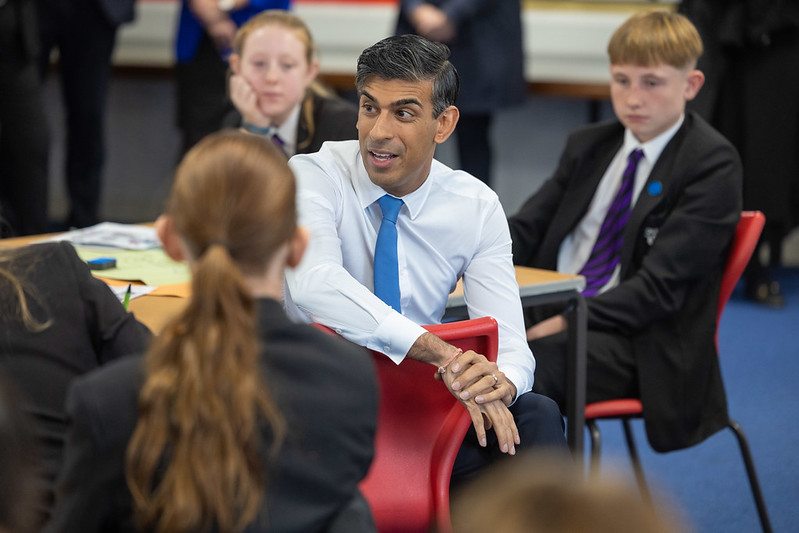What is the Advanced British Standard and what does it mean for me?

It’s vital that our education system is set up to support the next generation and beyond.
We need to compete with other high-performing countries and make sure that all our young people have the skills they need to thrive.
We have made huge progress. In 2009, England was ranked 27th in the world for maths. Now, thanks to our reforms, we have risen to 11th in the world in the 2022 PISA results.
But still not enough students leave school with a standard pass in English and maths, and we study a narrower range of subjects, with fewer teaching hours, than students around the world.
That’s why we’re introducing a new, single qualification framework for 16–19-year-olds called the Advanced British Standard (ABS), that will give young people the knowledge and skills they need to succeed.
The ABS is an important, long-term change to our education system. We want to work closely with students, universities, employers, and the teaching profession to introduce it in the best way possible.
Today, we’re launching a consultation about the ABS, where you can share your views on the qualification and how it should work.
What is the Advanced British Standard (ABS)?
Currently after their GCSEs, students face a complicated choice of too many post-16 qualifications.
Instead of limiting their options at an early age, the Advanced British Standard will put technical and academic education on an equal footing and bring all options into a simple, high-quality menu of choices.
Under the new qualification:
- Every young person will study some form of English and maths until the age of 18.
- Students will study a minimum of five subjects.
- They will choose a combination of bigger and smaller subjects – called majors and minors.
- Students will receive more teaching hours.
- They can choose between mainly technical or academic study, or a combination of both.
Will it replace A levels and T levels?
Yes, we anticipate that once the Advanced British Standard is introduced, it will replace the current landscape of qualification.
Apprenticeships will still be available for those who wish to move straight into ‘on-the-job’ training, but all students will be required to study maths and English until 18.
There will be specific support available for those who do not achieve a standard pass in their English and maths GSCE at school.

Why do we need to study maths and English until 18?
Too many students leave school without a standard pass in English and maths GCSE, that will give them the skills needed to fulfil their potential.
Basic maths and English are essential for developing skills and confidence in the workplace.
Achieving a good pass in GCSE maths increases a person’s lifetime earnings by 5% – while those with a maths A level are estimated to earn 7-10% more those without one, even if they’re educated to a similar level.
Almost no other major economy gives students 100% flexibility in subject choice, with France, Japan, Germany, and the USA all requiring young people to study maths and their native language.
Requiring all students to study English and maths until 18 will ensure that all young people – particularly the most disadvantaged – are set up with all the skills they need to succeed in work and life.
Why do we need to study more subjects?
Students in the UK are often forced to choose between following their passions and developing core knowledge. This can limit themselves to specialising in certain areas from an early age.
Our young people study a smaller range of subjects than students across the world – with countries across the OECD typically studying around seven.
Students in Japan, Germany, USA, Canada, Ireland, and Estonia all study a higher number than those in the UK.
By making sure our students study a broad range of subjects – including English and maths – we can make sure all our young people are set up to succeed in a world that demands a wider breadth of knowledge.

Why do we need to increase teaching hours?
Our 16–19-year-olds have far less teaching time than those in other countries, with a bigger focus on studying at home.
Independent study can be hugely beneficial for young people, but surveys in England suggest that pupils from disadvantaged backgrounds are less likely to have a quiet working space, access to a computer or laptop or a stable internet connection.
All of this may affect their ability to focus on independent study and mean they’re at a disadvantage compared to other students.
By increasing the number of hours that students are taught a week we can make the system fairer for less advantaged students.
